
A surprising joining of improvisers and composers from Japanese acoustic guitarist Tetuzi Akiyama playing with Swedish composers and performers, Magnus Granberg on clarinet and Henrik Olsson on percussion and electronics, the latter two part of the chamber ensemble Skogen, for five works of profound calm and center through slow harmonics weaving beautiful aural statements.
Out of Stock
Quantity in Basket: None
Log In to use our Wish List
Shipping Weight: 3.00 units
Sample The Album:
Tetuzi Akiyama-acoustic guitar
Magnus Granberg-clarinet
Henrik Olsson-percussion, electronics
Click an artist name above to see in-stock items for that artist.
Label: Ftarri / Meenna
Catalog ID: meenna-983
Squidco Product Code: 25516
Format: CD
Condition: New
Released: 2017
Country: Japan
Recorded at Studio Summa, in Stockholm, Sweden, on November 12th, 2013, by Andreas Werliin.
"Guitarist Tetuzi Akiyama is an influential improviser who performs inside and outside Japan and has numerous CD releases on Japanese and overseas labels. The five tracks on this CD are improvisational performances by the trio of Akiyama and Swedish musicians Magnus Granberg and Henrik Olsson, studio-recorded when Akiyama visited Stockholm in November 2013. Magnus Granberg is active as a composer through projects such as his own ensemble, Skogen, and as an improviser using mainly the clarinet. Percussionist Henrik Olsson incorporates non-instrument objects, electronics and other elements in creating new types of sonic resonance. On this CD, Akiyama uses acoustic guitar; Granberg, clarinet; and Olsson, percussion, contact microphones, mixing board and loudspeakers. Each musician plays quietly and calmly, as if carefully selecting each sound he produces. These exquisitely spun sounds overlap and sometimes pause for breath."-Ftarri
"The trio disc by Tetuzi Akiyama (acoustic guitar), Magnus Granberg (clarinet) and Henrik Olsson (percussion, contact microphones, mixing board and loudspeakers) is as radical as the previous one by Kerbaj and Nakamaru, but also something entirely different. The five pieces here were recorded in November 2013 and while these pieces have nothing of the more extreme sonic richness, neither the bursting nor cracking of energy, the mood here is controlled and slow. Akiyama plucks his strings in a rather minimal way, While Granberg's clarinet sometimes sounds like sine waves; and probably feedback, so I was thinking. If Olsson plays contact microphones and loudspeakers I wouldn't be surprised to learn that as part of his work he picks up the sound by the other players and feeds recordings of these back in the overall playing. This leads to the somewhat feedback like sound that one sometimes hears here and that leads to a different kind of radicalism in sound. Of course I might be entirely wrong and it is all in my mind and Olsson plays a much different role, and yes, I do hear his percussion as well. The sound comes, perhaps strangely enough, across as something very acoustic, very direct and surely picked up with some great microphones, which leads occasionally to some surprise sounds up close to the listener. This was all rather excellent."-Frans de Waard, Vital Weekly
Get additional information at Vital Weekly
Artist Biographies
• Show Bio for Tetuzi Akiyama "Tetuzi Akiyama (Akiyama Tetsuji) (born 13 April 1964) is a Japanese guitarist, violinist, and instrument-maker. Akiyama formed the improvisation group Madhar in 1987, and the classical ensemble Hikyo String Quintet in 1994 (which also included Taku Sugimoto on cello). In 1995, Akiyama and Sugimoto formed a guitar duo, and played at venues in New York City, Chicago, and Detroit. During this time, Akiyama was also a member of Keiji Haino's Nijiumu outfit. Akiyama also formed Sutekina Tea Time (a duo with Takashi Matsuoka) and Mongoose (a trio with Taku Sugimoto and Utah Kawasaki). In 1998 Akiyama began organising a monthly concert series, The Improvisation Meeting, with Toshimaru Nakamura. In December 2006 he began a regular duo with Hervé Boghossian (France), they toured in Europe (France, Portugal, Switzerland, England) several times in 2007 (in May, October & December) & also played in Tokyo during Hervé Boghossian Japanese tour in August/September 2008. In 2009 he worked with David Sylvian." ^ Hide Bio for Tetuzi Akiyama • Show Bio for Magnus Granberg "Magnus Granberg is a composer and performer working at an intersection between contemporary chamber music and improvisation. He is based in Stockholm, Sweden. Born in Umeå in 1974, he studied saxophone and improvisation at the University of Gothenburg and in New York in his late teens and early twenties. Self-taught as a composer, he formed his own ensemble Skogen in 2005 trying to integrate experiences, methods and materials from various traditions of improvised and composed musics into a new modus operandi. Now mainly working with the ensemble Skogen and the newly formed Skuggorna och ljuset, while also writing music on commission for different ensembles and projects. He is also active as an improvisor in different contexts, mainly playing the clarinet. His music has been performed in Norway, Sweden, Switzerland, the United States, England, Austria, Hungary and Slovenia, broadcast by public radio channels in England (BBC Radio 3 and 6), Germany (SWR 2), Sweden (SR P2), Estonia, Slovenia, Serbia, Hungary and the United States, and has been published by the British record label Another Timbre. Recent work includes a commission from Another Timbre and Ensemble Grizzana and collaborations with musicians such as David Sylvian, Christoph Schiller and the Swiss duo Diatribes. He has in the last decade also, more or less regularly, collaborated with musicians such as Angharad Davies, Tisha Mukarji, Tetuzi Akiyama, Toshimaru Nakamura, Anna Lindal, Kristine Scholz, Rhodri Davies, Simon Allen, Christoph Schiller and Ko Ishikawa." ^ Hide Bio for Magnus Granberg • Show Bio for Henrik Olsson "Henrik Olsson was born in 1975 in the village of Kyrkhult, a small industrial community in the south of Sweden. Studied classical percussion and received my MFA in 2001 at The Academy of Music and Drama, University of Gothenburg. I move freely between notated music and free improvisation, blending acoustic and amplified sounds with the use of contact microphones." ^ Hide Bio for Henrik Olsson
7/9/2025
Have a better biography or biography source? Please Contact Us so that we can update this biography.
7/9/2025
Have a better biography or biography source? Please Contact Us so that we can update this biography.
7/9/2025
Have a better biography or biography source? Please Contact Us so that we can update this biography.
Track Listing:
1. Words 9:55
2. No Words 10:51
3. Knowing 11:18
4. Saying 8:50
5. Ask In Vain 10:54
Improvised Music
Free Improvisation
Electro-Acoustic
Electro-Acoustic Improv
Japanese & Asian Improv/Rock
European Improvisation and Experimental Forms
Trio Recordings
Search for other titles on the label:
Ftarri / Meenna.


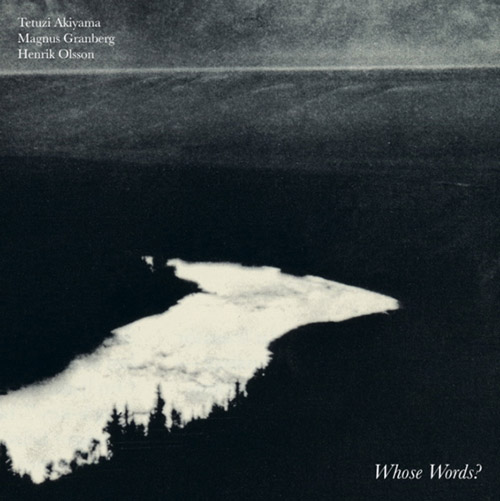
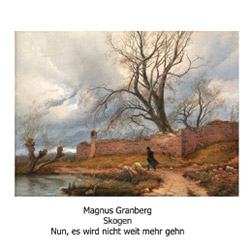


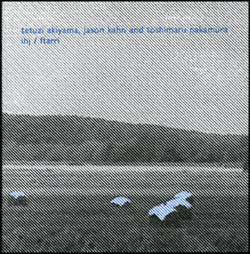






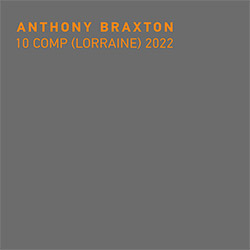
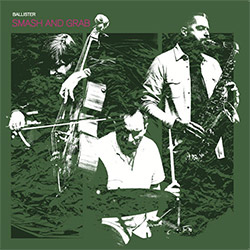


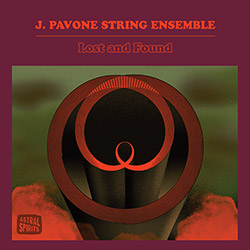


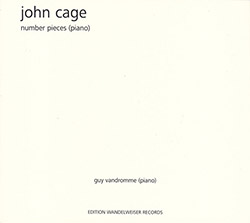
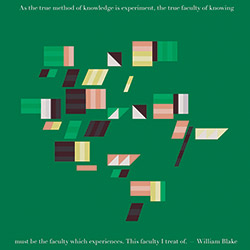



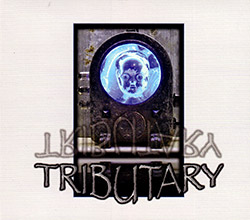
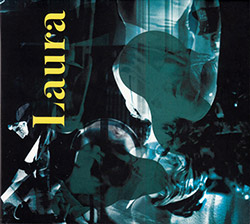

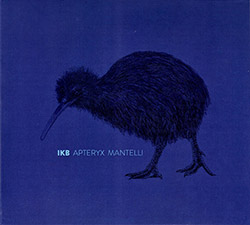




![BlueRing Improvisers: Materia [2 CDs]](https://www.teuthida.com/productImages/misc4/36513.jpg)








![Wheelhouse (Rempis / Adasiewicz / McBride): House And Home [VINYL]](https://www.teuthida.com/productImages/misc4/36462.jpg)
![+DOG+: The Light Of Our Lives [2 CDs]](https://www.teuthida.com/productImages/misc4/36009.jpg)


![Parker, Evan / Jean-Marc Foussat: Insolence [VINYL]](https://www.teuthida.com/productImages/misc4/36398.jpg)










![Deupree, Jerome / Sylvie Courvoisier / Lester St. Louis / Joe Morris: Canyon [2 CDs]](https://www.teuthida.com/productImages/misc4/36404.jpg)



![Eventless Plot | Haarvol: The Subliminal Paths [CASSETTE + DOWNLOAD]](https://www.teuthida.com/productImages/misc4/36232.jpg)










![Eventless Plot | Francesco Covarino: Methexis [CASSETTE + DOWNLOAD]](https://www.teuthida.com/productImages/misc4/36231.jpg)



![Das B (Mazen Kerbaj / Mike Majkowski / Magda Mayas / Tony Buck): Love [VINYL]](https://www.teuthida.com/productImages/misc4/36329.jpg)


![Eternities: Rides Again [CASSETTE]](https://www.teuthida.com/productImages/misc4/36247.jpg)
![Lopez, Francisco: Untitled (2021-2022) [2 CDs]](https://www.teuthida.com/productImages/misc4/36438.jpg)






![Money : Money 2 [2 CDs]](https://www.teuthida.com/productImages/misc4/35894.jpg)




![Klinga, Erik: Elusive Shimmer [VINYL]](https://www.teuthida.com/productImages/misc4/36258.jpg)
![CHANGES TO blind (Phil Zampino): Volume 9 - I Wave on a Fine Vile Mist [CD + DOWNLOAD]](https://www.teuthida.com/productImages/misc4/36061.jpg)

![Wallmart / Rubbish: Asset Protection [split CD]](https://www.teuthida.com/productImages/misc4/35900.jpg)


![+Dog+: The Family Music Book Vol. 5 [2 CDs]](https://www.teuthida.com/productImages/misc4/35897.jpg)
![Kuvveti, Deli : Kuslar Soyledi [CASSETTE w/ DOWNLOAD]](https://www.teuthida.com/productImages/misc4/36107.jpg)

![Brown, Dan / Dan Reynolds: Live At The Grange Hall [unauthorized][CASSETTE]](https://www.teuthida.com/productImages/misc4/36245.jpg)








![Palestine, Charlemagne / Seppe Gebruers: Beyondddddd The Notessssss [VINYL]](https://www.teuthida.com/productImages/misc4/36206.jpg)
![Palestine, Charlemagne / Seppe Gebruers: Beyondddddd The Notessssss [NEON GREEN VINYL]](https://www.teuthida.com/productImages/misc4/36207.jpg)

![Laubrock, Ingrid: Purposing The Air [2 CDs]](https://www.teuthida.com/productImages/misc4/35639.jpg)

![Yoko, Ono / The Great Learning Orchestra: Selected Recordings From Grapefruit [2 CDs]](https://www.teuthida.com/productImages/misc4/35841.jpg)









![Zorn, John / JACK Quartet: The Complete String Quartets [2 CDs]](https://www.teuthida.com/productImages/misc4/35609.jpg)

![Lonsdale, Eden: Dawnings [2 CDs]](https://www.teuthida.com/productImages/misc4/35480.jpg)



![Sorry For Laughing (G. Whitlow / M. Bates / Dave-Id / E. Ka-Spel): Rain Flowers [2 CDS]](https://www.teuthida.com/productImages/misc4/35985.jpg)

![Rolando, Tommaso / Andy Moor : Biscotti [CASSETTE w/ DOWNLOADS]](https://www.teuthida.com/productImages/misc4/36106.jpg)


![Electric Bird Noise / Derek Roddy: 8-10-22 [CD EP]](https://www.teuthida.com/productImages/misc4/35970.jpg)








![Elephant9 : Mythical River [VINYL]](https://www.teuthida.com/productImages/misc4/34624.jpg)



![Elephant9 with Terje Rypdal: Catching Fire [VINYL 2 LPs]](https://www.teuthida.com/productImages/misc4/35355.jpg)
![Deerlady (Obomsawin, Mali / Magdalena Abrego): Greatest Hits [VINYL]](https://www.teuthida.com/productImages/misc4/34876.jpg)







![Surplus 1980: Illusion of Consistency [CD]](https://www.teuthida.com/productImages/misc4/35069.jpg)
![Staiano, Moe: Away Towards the Light [VINYL + DOWNLOAD]](https://www.teuthida.com/productImages/misc4/35037.jpg)
![Coley, Byron: Dating Tips for Touring Bands [VINYL]](https://www.teuthida.com/productImages/misc4/17906.jpg)

![Lost Kisses: My Life is Sad & Funny [DVD]](https://www.teuthida.com/productImages/misc4/lostKissesDVD.jpg)